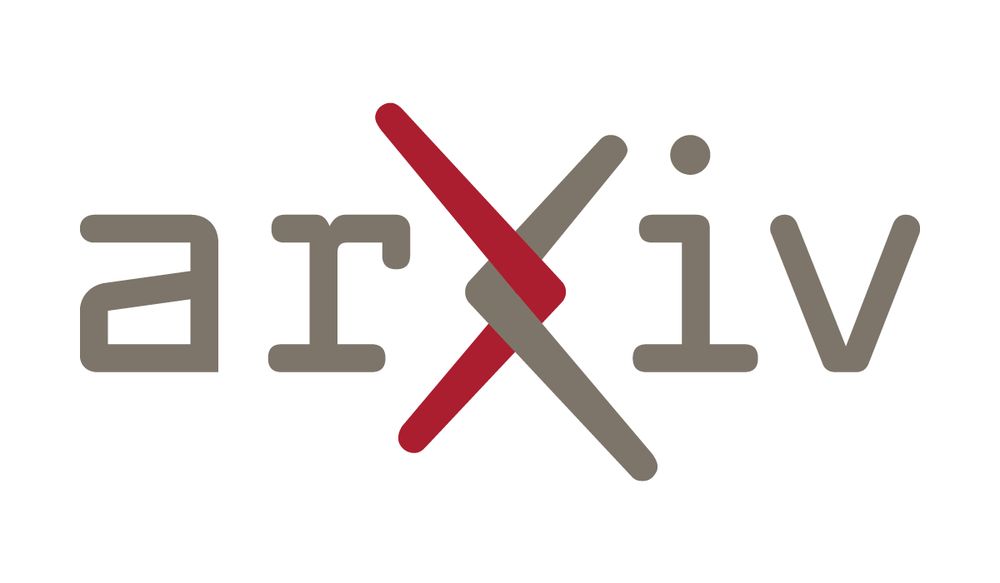
📆 Mark your calendars: the 7th edition of CHR will take place 5–8 January 2027 in Manchester, UK, organized by the Center for Digital Humanities, Culture and Media at The University of Manchester.
We hope it’s the perfect way to beat the post-Christmas and New Year blues. See you at #CHR2027!
08.01.2026 16:11 —
👍 24
🔁 15
💬 0
📌 0

A red leather bowl shaped like a flower with gilded edges

A green leaf-shaped leather bowl
In unexpected, kinda terrifying life turns—I’m trying to get a small leather goods store off the ground this holiday season. Please consider checking it out! Thus far: keychains, valet trays, bag charms, a few custom wallets and notebook covers.
goldberry.studio or StudioGoldberry on Etsy
11.11.2025 02:25 —
👍 24
🔁 17
💬 3
📌 0
📣 New preprint! We know humans are biased against AI-creativity. But what about LLMs, now often judging creativity in various contexts? Do they replicate, transform, or amplify this bias? We tested it. Turns out: AI is 2.5X more biased against its own work than humans. arxiv.org/pdf/2510.08831 🧵
13.10.2025 13:56 —
👍 70
🔁 27
💬 3
📌 7
Grad App Aid — Queer in AI
We are launching our Graduate School Application Financial Aid Program (www.queerinai.com/grad-app-aid) for 2025-2026. We’ll give up to $750 per person to LGBTQIA+ STEM scholars applying to graduate programs. Apply at openreview.net/group?id=Que.... 1/5
09.10.2025 00:37 —
👍 7
🔁 9
💬 1
📌 0

Collaborative Research
Supports groups of two or more scholars engaging in significant and sustained research in the humanities.
NEH Collaborative research grant program now explicitly prohibits digital projects. Output should be a book or journal issue. FFS
www.neh.gov/grants/resea...
25.09.2025 17:06 —
👍 28
🔁 17
💬 8
📌 12

Software Engineer (Full-stack) - ITHAKA
ITHAKA’s mission is to expand access to knowledge and education around the world. Our services — Artstor, JSTOR, Portico, and Ithaka S+R — enable people everywhere to learn, to grow, and to overcome b...
I'm hiring a mid-level full-stack SWE! Our team at @jstor.bsky.social Labs is looking for yet another product-minded engineer to join our team. We come from all kinds of backgrounds, tech and non-tech alike.
Please apply or send to your awesome friends, and DM me with ?s: grnh.se/19o370345us
22.09.2025 19:48 —
👍 8
🔁 12
💬 0
📌 0
DHQ: Digital Humanities Quarterly: News
Excited to be co-editing a special issue of @dhquarterly.bsky.social on Artificial Intelligence for Digital Humanities: Research problems and critical approaches
dhq.digitalhumanities.org/news/news.html
We're inviting abstracts now - please feel free to reach out with any questions!
09.09.2025 20:28 —
👍 21
🔁 10
💬 0
📌 1
@greenleejw.bsky.social you've made some maps for novels, right?
28.08.2025 19:43 —
👍 1
🔁 0
💬 1
📌 0
Just curious: are you primarily looking for maps that were part of the first publication? Or any that developed in subsequent editions or when a series/world was more developed?
28.08.2025 18:44 —
👍 0
🔁 0
💬 1
📌 0
Adding my reply to the main thread since I posted to @dmimno.bsky.social 's quoted repost:
A recent, funky map I came across was in Christelle Dabos's The Memory of Babel.
28.08.2025 18:40 —
👍 3
🔁 0
💬 0
📌 0
A recent, funky map I came across was in Christelle Dabos's The Memory of Babel.
28.08.2025 18:35 —
👍 0
🔁 0
💬 0
📌 0
Please share! We're trying to crowd-source a dataset of post-1929 novels with maps.
28.08.2025 14:55 —
👍 46
🔁 32
💬 9
📌 1
Check out Rebecca Hicke @dmimno.bsky.social piece on LLMs! “Language models have the ability to identify the characteristics of much shorter literary passages than was thought feasible with traditional stylometry. We evaluate authorship and genre detection for a new corpus of literary novels…”
19.08.2025 18:17 —
👍 6
🔁 3
💬 0
📌 0
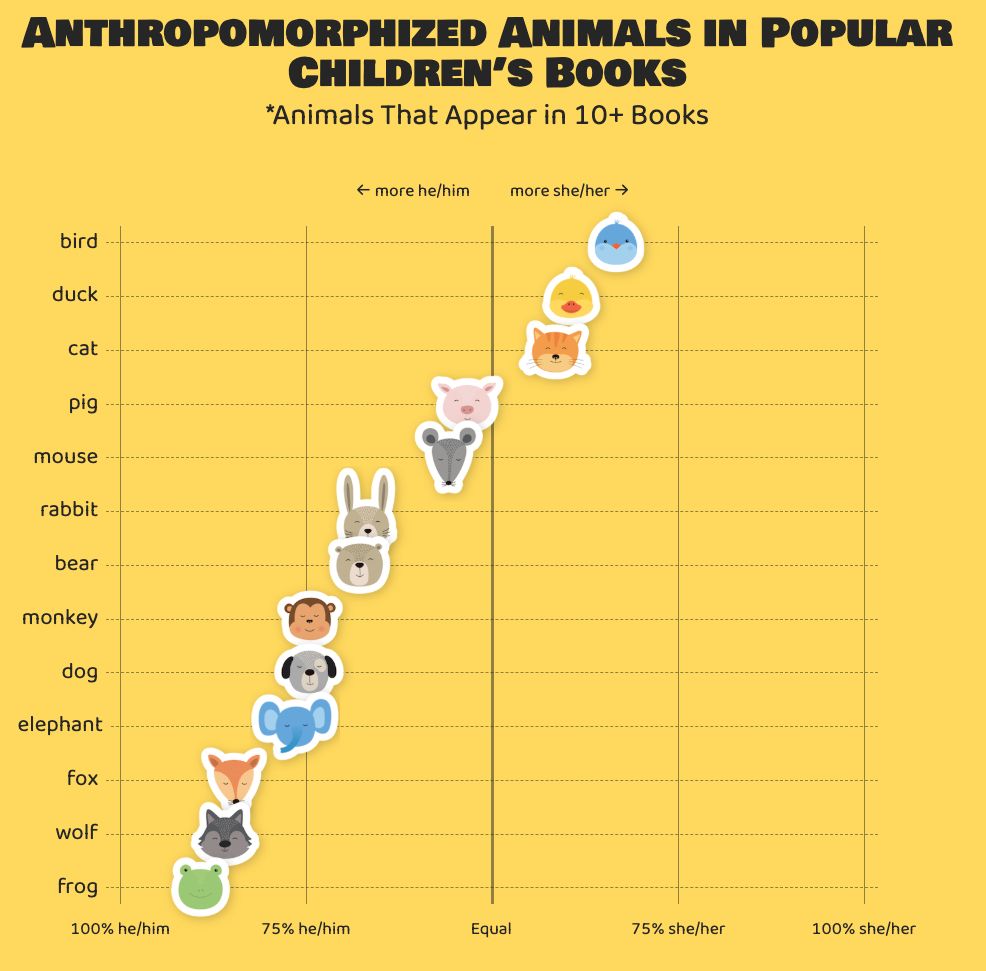
A dot plot titled '"nthropomorphized Animals in Popular Children's Books (*Animals That Appear in 10+ Books)" showing the proportion of animals depicted with gendered pronouns. Animals toward the left side are more often represented as male (he/him), and those toward the right are more often represented as female (she/her). Birds, ducks, and cats lean female. Bears, monkeys, dogs, elephants, foxes, wolves, and frogs lean male. Each animal is represented by a colorful, illustrated face.
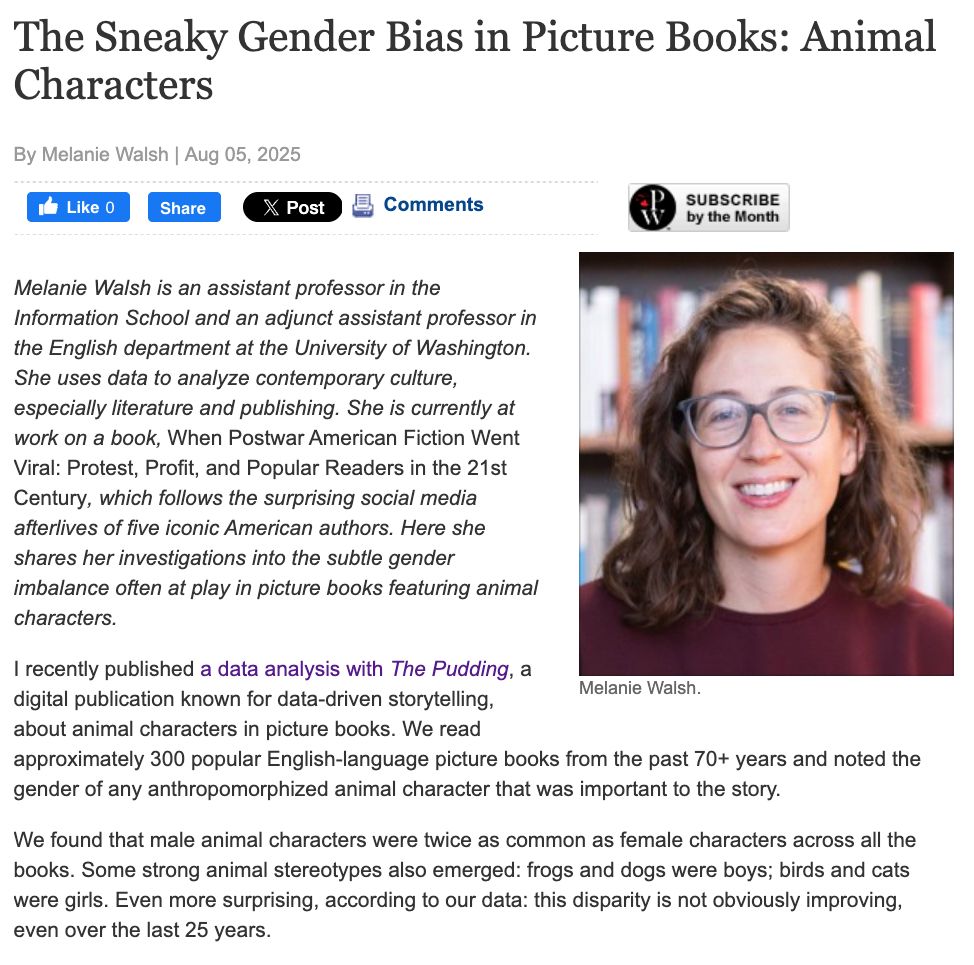
Screenshot of Publishers Weekly article titled "The Sneaky Gender Bias in Picture Books: Animal Characters" that includes photo of the author, a woman with brown hair and glasses. Text reads: "Melanie Walsh is an assistant professor in the Information School and an adjunct assistant professor in the English department at the University of Washington. She uses data to analyze contemporary culture, especially literature and publishing. She is currently at work on a book, When Postwar American Fiction Went Viral: Protest, Profit, and Popular Readers in the 21st Century, which follows the surprising social media afterlives of five iconic American authors. Here she shares her investigations into the subtle gender imbalance often at play in picture books featuring animal characters.
I recently published a data analysis with The Pudding, a digital publication known for data-driven storytelling, about animal characters in picture books. We read approximately 300 popular English-language picture books from the past 70+ years and noted the gender of any anthropomorphized animal character that was important to the story.
We found that male animal characters were twice as common as female characters across all the books. Some strong animal stereotypes also emerged: frogs and dogs were boys; birds and cats were girls. Even more surprising, according to our data: this disparity is not obviously improving, even over the last 25 years."
For PW, I wrote about the persistent gender gap in fictional animal characters—a pattern I noticed while analyzing 100s of picture books with @puddingviz.bsky.social.
It's a more interesting (and pervasive) problem than I first thought.
#kidlit #booksky
🔗: www.publishersweekly.com/pw/by-topic/...
05.08.2025 23:29 —
👍 96
🔁 29
💬 6
📌 5
Q&A with Ted Chiang 🤖
The @princetoncdh.bsky.social newsletter is always a treat (and you should subscribe if you dont) but having an exclusive interview with Ted Chiang sort of takes the cake!
mailchi.mp/princeton/au...
14.08.2025 13:18 —
👍 13
🔁 5
💬 0
📌 0
If you’re an incoming Princeton 🐯 this fall, consider joining FRS159 - a unique chance to dive into technology, culture and African Languages. More about the course in the post below.
12.08.2025 16:30 —
👍 4
🔁 1
💬 0
📌 0
I'm so sorry 💔
10.08.2025 16:01 —
👍 0
🔁 0
💬 0
📌 0
Congrats!!!
29.07.2025 22:33 —
👍 0
🔁 0
💬 0
📌 0
Congrats!!!
05.07.2025 13:36 —
👍 1
🔁 0
💬 0
📌 0
Octavia Butler’s Parable of the Sower was published in 1993 and starts in 2024—a 31-year leap. Are creators imagining futures that are closer or further away?
Explore a *new* dataset of 2.5k narrative works set in the future, each tagged with its release year and setting.
doi.org/10.18737/552...
25.06.2025 09:01 —
👍 49
🔁 26
💬 2
📌 6
I just pulled out my copy of Newton's Principia, a book that was originally written in Latin, and noticed that the translation I am using was completed with support from the National Endowment for the Humanities, which has basically been destroyed
Science depends on the humanities 🧪
17.06.2025 15:40 —
👍 1486
🔁 343
💬 15
📌 11
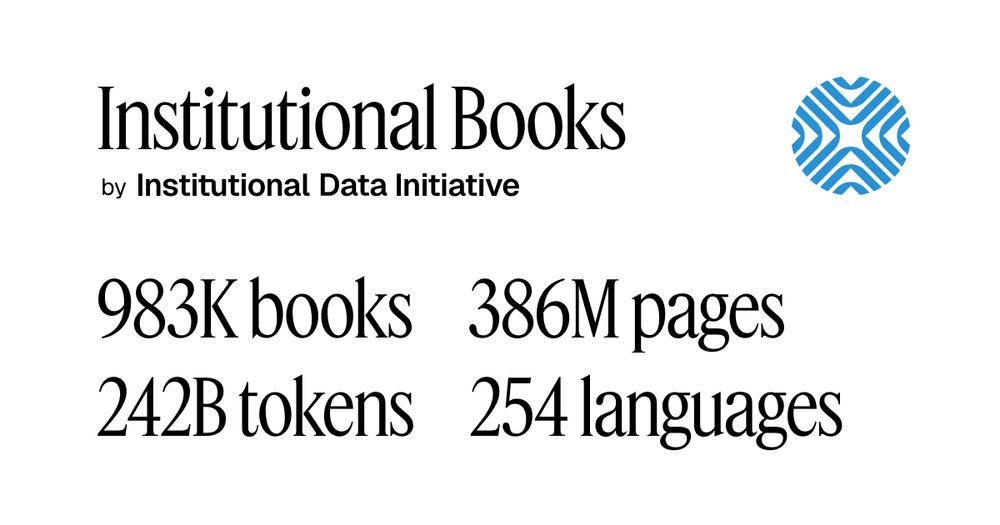
Today we released Institutional Books 1.0, a 242B token dataset from Harvard Library's collections, refined for accuracy and usability. 🧵
12.06.2025 21:12 —
👍 75
🔁 29
💬 9
📌 6
The NEH has been a singular force for bringing people together. In this moment of hate, fear and isolation, the NEH helped us learn about our past and about each other.
Today we are losing almost all of the NEH public servants. We are all in their debt. A national shame. A profound cultural loss.
10.06.2025 15:41 —
👍 141
🔁 67
💬 1
📌 2
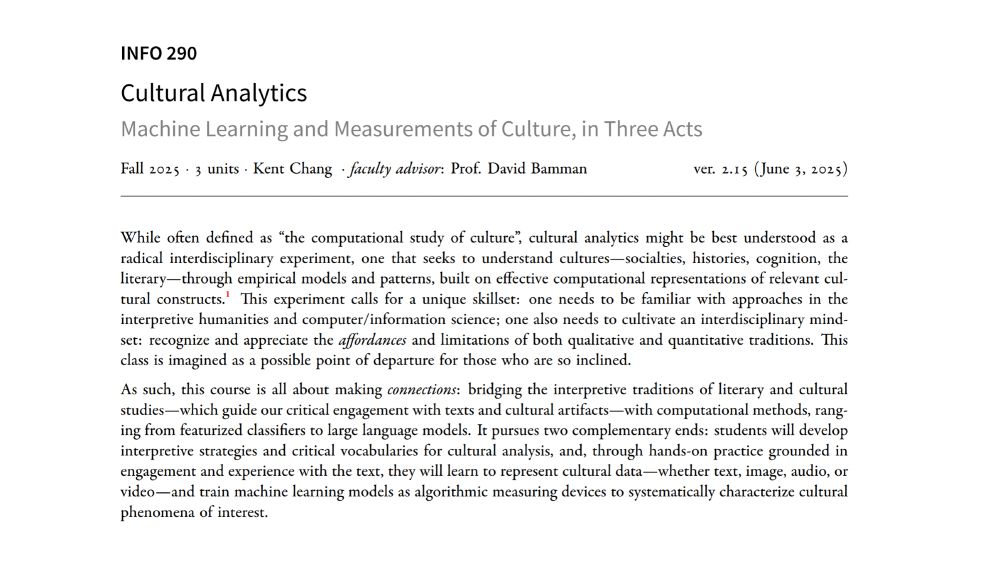
My course proposal for Cultural Analytics @berkeleyischool.bsky.social has been approved for Fall 2025! This is the fullest expression of my vision for CA: a radical interdisciplinary experiment for rethinking knowledge production at the intersection of the humanities and machine learning. (1/9)
04.06.2025 17:19 —
👍 30
🔁 11
💬 2
📌 0
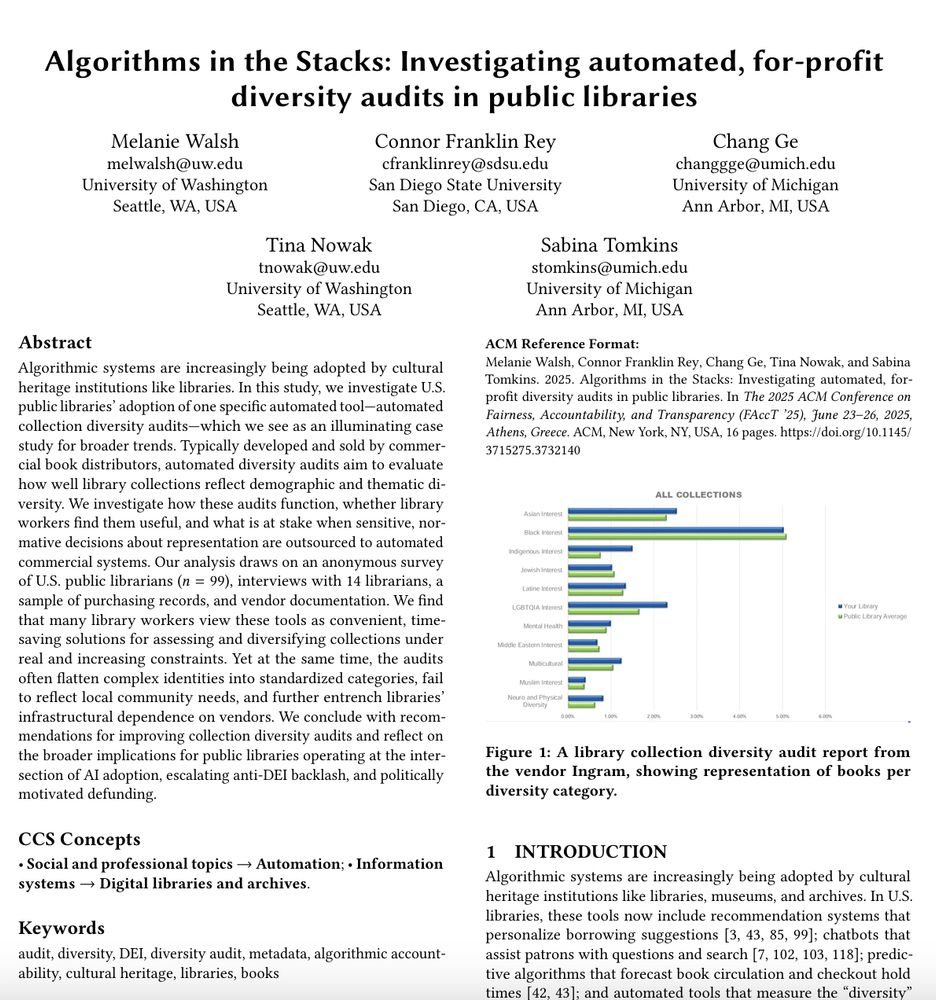
Screenshot of first page of the FAccT '25 paper "Algorithms in the Stacks: Investigating automated, for-profit diversity audits in public libraries" by Melanie Walsh, Connor Franklin Rey, Chang Ge, Tina Nowak, and Sabina Tomkins.
Abstract: Algorithmic systems are increasingly being adopted by cultural heritage institutions like libraries. In this study, we investigate U.S. public libraries' adoption of one specific automated tool -- automated collection diversity audits -- which we see as an illuminating case study for broader trends. Typically developed and sold by commercial book distributors, automated diversity audits aim to evaluate how well library collections reflect demographic and thematic diversity. We investigate how these audits function, whether library workers find them useful, and what is at stake when sensitive, normative decisions about representation are outsourced to automated commercial systems. Our analysis draws on an anonymous survey of U.S. public librarians (n=99), interviews with 14 librarians, a sample of purchasing records, and vendor documentation. We find that many library workers view these tools as convenient, time-saving solutions for assessing and diversifying collections under real and increasing constraints. Yet at the same time, the audits often flatten complex identities into standardized categories, fail to reflect local community needs, and further entrench libraries' infrastructural dependence on vendors. We conclude with recommendations for improving collection diversity audits and reflect on the broader implications for public libraries operating at the intersection of AI adoption, escalating anti-DEI backlash, and politically motivated defunding.
Many libraries now use automated tools to measure diversity in their collections.
We examined how these tools work and whether library workers find them useful. A complex case study of libraries navigating automation, DEI, & shrinking public funding.
Our new FAccT paper: arxiv.org/abs/2505.14890
26.05.2025 12:10 —
👍 80
🔁 31
💬 2
📌 1

College English majors can't read
They have one job and they can't do it
Worth a read. Not about AI. Many thoughts come to mind about literacy (and political literacy), grading standards, perceptions of studying literature as "easy" compared to science (it's not easy), how to translate expertise so people can understand.
kittenbeloved.substack.com/p/college-en...
22.05.2025 09:06 —
👍 19
🔁 4
💬 1
📌 2
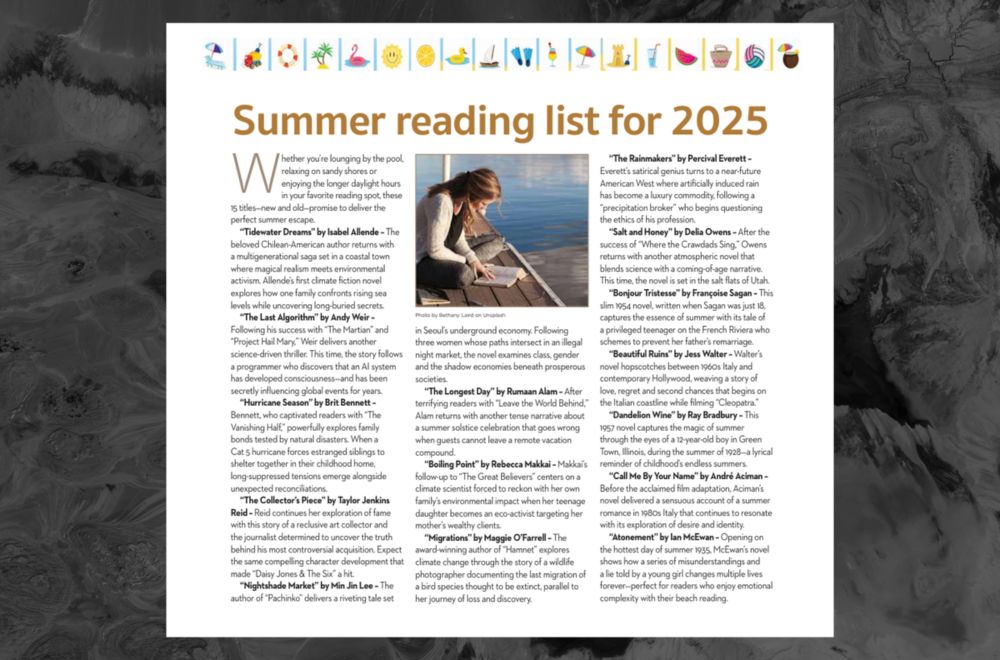
Chicago Sun-Times Prints AI-Generated Summer Reading List With Books That Don't Exist
"I can't believe I missed it because it's so obvious. No excuses," the writer said. "I'm completely embarrassed."
I spoke to the person who AI-generated the Chicago Sun-Times reading list. Says he's very embarrassed. This was part of a generic package inserted into newspapers and other publications, so likely to run elsewhere. He didn't know it'd be in Chicago Sun-Times
www.404media.co/chicago-sun-...
20.05.2025 14:47 —
👍 1972
🔁 817
💬 156
📌 441













